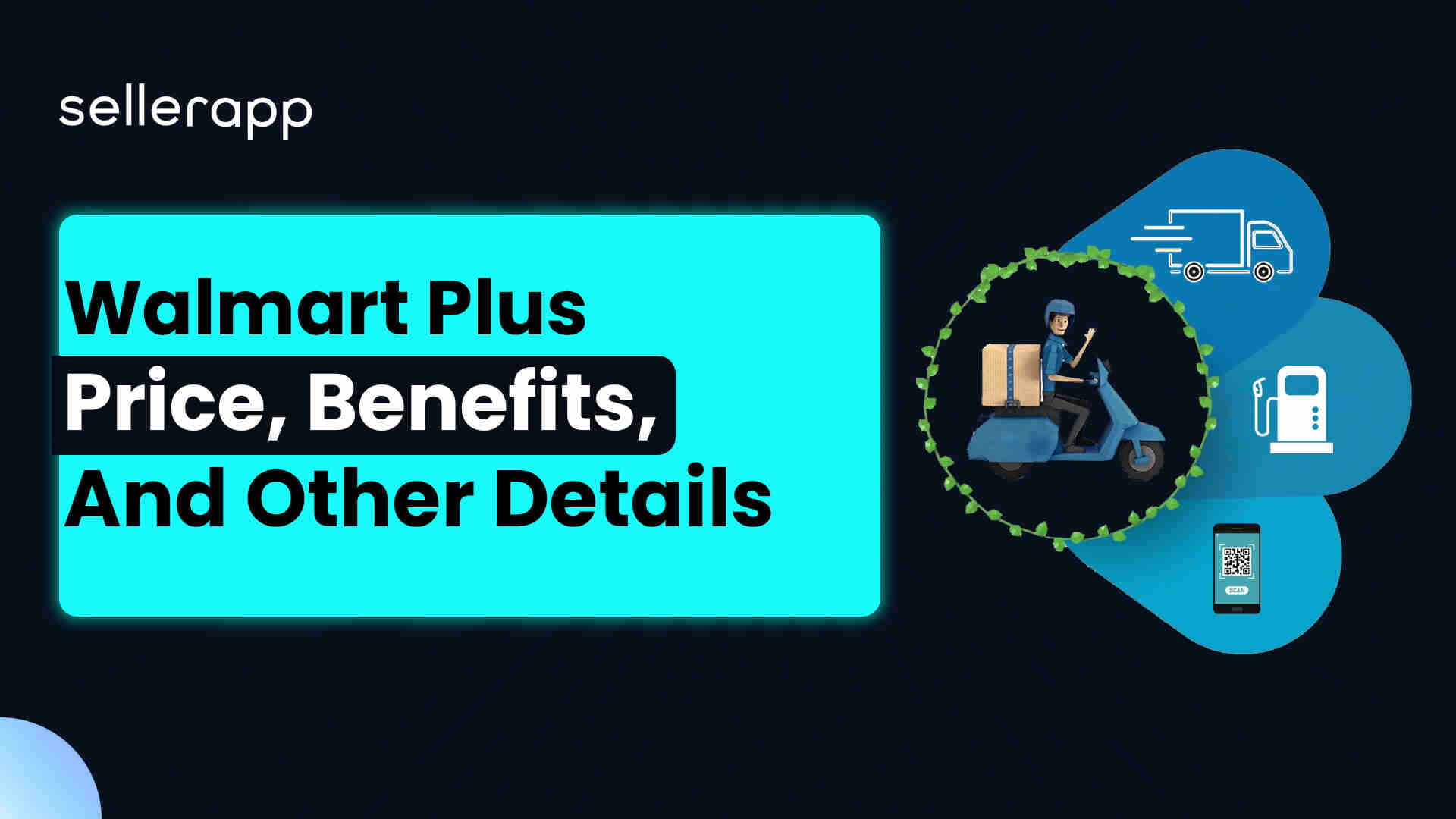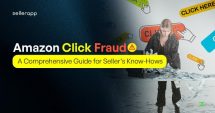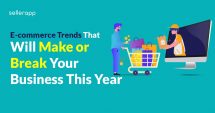An Overview of Fast-Moving Consumer Goods Marketing

Imagine you’re at the starting line of a race, competing against world-class runners.
How do you ensure you’re the one who crosses the finish line first? You need a proper strategy!
Similarly, for FMCG brands, there are multiple competitors flooding the market. On top of that, consumers in this space value affordability over anything else.
So, how do you stand out in this competitive landscape?
That’s where FMCG’s marketing strategies come in. If implemented correctly, these strategies will get more visibility, brand loyalty, and in the end more sales.
In this guide, we’ll uncover the 11 must-know marketing strategies that can help FMCG brands like yours not only survive but thrive in this fast-paced world of everyday products.
So, let’s dive in and discover the keys to making your brand stand out on those crowded shelves!
Quick Guide
- What are Fast-Moving Consumer Goods (FMCG)?
- Opportunities and Challenges of FMCG Marketing
- 11 Must-Have Marketing Strategies to Promote Your FMCG Products
- FMCG Marketing Strategy Case Studies
- Conclusion
What are Fast-Moving Consumer Goods (FMCG)?
Fast-moving consumer goods (FMCG) are products that are typically consumed or replaced frequently by consumers. These goods have a relatively short shelf life and are characterized by their high turnover rate, rapid sales, and low-cost nature.
FMCG products are everyday essentials that people purchase regularly, often without much consideration or research. Some common examples of FMCG products include
Food and Beverages:
This category includes items like milk, bread, snacks, canned goods, soft drinks, and ready-to-eat meals.
Personal Care Products:
Products such as toothpaste, shampoo, soap, deodorant, and skincare items fall into this category.
Household Cleaning Products:
Cleaning agents, detergents, disinfectants, and paper products like toilet paper and tissues are considered FMCG.
Healthcare Products:
Over-the-counter medications, vitamins, and first-aid supplies are part of the FMCG sector.
Cosmetics and Beauty Products:
Items like makeup, perfumes, and grooming products are also included in this category.
Tobacco Products:
Cigarettes and other tobacco-related products are fast-moving consumer goods.
These products are widely distributed through various channels, including supermarkets, convenience stores, online retailers, and more. FMCG companies often engage in competitive marketing strategies to capture and retain market share in this highly dynamic and fast-paced industry.
Opportunities and Challenges of FMCG Marketing
Currently, the FMCG market is valued at approximately $670 billion, and by 2027, it is estimated to reach almost $900 billion. With such a robust growth trajectory, this industry has tremendous potential for the future.
One of the most notable advantages of FMCG marketing lies in the inherent nature of these products.
Loyal customers are a strong foundation of this sector, with many individuals purchasing FMCG items frequently, sometimes even on a daily or weekly basis. These products are things we need in our everyday lives, and they are used by different types of people.
Even when times are tough and money is tight, these products are still in demand, which means the FMCG industry is very resilient and can handle difficult times well.
However, amid the promising opportunities, FMCG marketing poses certain distinct challenges:
Intense Competition:
Due to the large number of customers in the FMCG market, many companies are attracted to it. This has made the market very competitive. It takes a lot of creativity and smart thinking to succeed in this busy market.
Customer Attraction:
When there are so many options in the market, it can be really difficult for a brand to get people to notice, especially if they don’t already have a lot of loyal customers. To stand out, brands need to have really good marketing that speaks to the people they want to sell to.
Loyalty Struggles:
FMCG products are often seen as basic goods that are similar to each other. This makes it hard for companies to keep customers loyal to them. People in this category often choose products based on the low price, sales, and special deals.
Regional Considerations:
While many FMCG companies operate globally or nationally, achieving success in this industry relies on comprehending and accommodating regional disparities and preferences. Adjusting strategies to local markets is crucial for sustained growth.
Even though FMCG products have a few challenges, a good marketing strategy can alleviate all these and help companies succeed.
11 Must-Have Marketing Strategies to Promote Your FMCG Products
Now that you know what FMCG is, let’s learn about a few solid FMCG marketing strategies that bring success to your brand.

Sell on Brand Website

A brand website is one of the most important marketing assets you can build for your FMCG products.
It is where you can showcase your products, tell your brand story, collect leads, and drive conversions without competing with anyone else.
It also helps build credibility for your brand and builds trust among customers.
To generate maximum sales, ensure a seamless user experience on the brand website, and bring traffic to it via paid ads, social media, or SEO.
And don’t forget to put important stuff like your business hours, phone number, and address on your website. This way, it’s easy for customers to find you and get in touch.
List on Marketplaces
Having an eCommerce website allows customers to explore your products, view their ingredients, and check prices. Even if the customers don’t make an immediate online purchase, having the information readily available can influence their decision to buy your products from a physical store.
Approximately 94% of customers rely on Amazon reviews when considering a purchase.
In addition to an eCommerce website, developing a shopping app for your FMCG store or brand is another way to tap into the world of online commerce while maintaining a retail store.
By offering an application that facilitates both online browsing and local delivery from your local store, you can significantly enhance the shopping experience for your customers, making it more convenient and accessible.
Power of Social Media Strategy
Having a strong social media plan is important. It helps your brand share information about your products and build a community of loyal customers.
Now, when it comes to social media, it’s good to be on different platforms like Instagram, YouTube, or Reddit. Each platform needs its different marketing strategies.
For example, let’s talk about Instagram. Here, you can put up pictures of your products with catchy captions. You can also use Instagram stories and reels to show off your product in an engaging way.

In the end, a comprehensive social media strategy helps FMCG companies improve brand awareness, and get more sales and visitors.
Invest in Influencer Marketing
37 percent of consumers trust social media influencers over brands. Partnering with the right influencers can generate good ROI for your business.
For example, if your FMCG brand sells healthy snacks, teaming up with a fitness influencer is a smart idea. They can make fun videos or posts showing how your snacks fit into a healthy lifestyle. It not only makes your brand more trustworthy but also introduces it to a bigger audience.

Utilize User-Generated Content
Using social media has changed how companies talk to their customers. It’s not just about one-way advertising anymore; it’s about having conversations.
Brands can leverage these conversations as user-generated content to promote their products.

For example, Coca-Cola executed an incredibly successful User-Generated Content (UGC) campaign known as “Share a Coke.” This memorable campaign was introduced in 2011 when the marketing team decided to print approximately 150 popular male and female names from Australia on their Coke bottles. The main objective was to encourage individuals to share a Coke with their loved ones.
The response to this campaign was nothing short of phenomenal. People rushed to purchase personalized bottles and enthusiastically shared their experiences on social media platforms. Thousands of photos flooded social media feeds, depicting how and with whom they were sharing their Coca-Cola.
This brilliant concept resonated not only in Australia but also in 80 other countries across the globe. People worldwide embraced the idea with excitement, and social media platforms were inundated with photos showcasing how they were participating in the “Share a Coke” movement.
Use a Content Marketing Strategy
Implement a well-crafted content marketing strategy to get more organic growth and boost traffic. It includes different kinds of content like blog posts, YouTube videos, articles, guides, and updates about your products.
For example, if you have a skincare brand, your content plan could have weekly blog posts about skincare tips, YouTube videos showing how to use your products, and product launch updates. This way, you keep your customers informed and make them feel connected to your brand.
Play with Pricing and Offers
You can also give compelling offers and discounts to captivate your audience. For example,
Quizzes and Games:
You can have quizzes or games about your products. It’s not just fun; it also teaches people more about your brand. One example of such a game is the PepsiCo Tasty Rewards program. It offers twice-monthly access to mailed or digital coupons, entries in sweepstakes, and exclusive recipes using the products. With these types of games, you can build strong customer loyalty and bring repeat businesses.

Polls:
You can ask people what they like and want more of. This shows you care about their opinions and helps you make better products in the future.
Giveaways and Contests:
You can have contests and giveaways where people can participate and win products from your brand. It makes everyone feel like part of a group and builds a stronger bond with your FMCG brand.
Utilize social media for community-oriented events that can set your FMCG brand apart from competitors and establish better brand awareness, strengthening your position in the market.
Customer-Centric Marketing
In the world of everyday products, it’s crucial to make customers happy. If they don’t get a good experience with your brand, they’ll switch. That’s where “Customer Experience” comes in.
Research shows that customers who have a positive brand experience are likely to spend 140% more than other customers.
So, in a world with so many choices, making customers happy and giving them a good experience is the key to success for FMCG brands.
For instance, Nestle, Kylie Cosmetics, and Fenty by Rihanna are a few brands that are known for providing incredible customer experience.
Remember, creating a positive customer experience can lead to increased customer loyalty and higher spending. By prioritizing customer satisfaction, brands can build long-lasting relationships with their customers.
Make Use of Paid Advertising
Supplement your organic marketing with a full-funnel advertising strategy on Google, Instagram, and e-commerce websites. This covers the entire advertising funnel, from building brand awareness to driving sales.
Paid ads also allow precise targeting, helping you reach the right people based on their interests and behaviors. Furthermore, once optimized, this full-funnel advertising strategy can yield cost-effective results, maximizing the return on investment for your FMCG businesses.
If you want to take your brand further with full-funnel advertising, SellerApp can help. Our team has helped over 20,000 brands to manage their advertising strategy and we can do the same for you.
Email Marketing
Utilize email marketing to engage and persuade customers effectively. It provides FMCG brands with a means to personalize communication, address specific customer behaviors, and ultimately drive conversions.
Consider Starbucks, for example. They’ve created an email campaign to launch a new product, Pumpkin Spice Latte. With this email, Starbucks used compelling images and messages to capture customers’ attention and generate excitement around the product.

As a result of the campaign, there was a notable 4% boost in the individuals intending to purchase a Pumpkin Spice Latte. Moreover, the campaign surpassed expectations by achieving a remarkable 62% increase in Pumpkin Spice Latte sales compared to the predetermined business targets for the campaign period.
Thus, email marketing is effective in the fast-paced world of FMCG, where timely engagement can make a significant impact on consumer choices and brand loyalty.
Online Reputation Management
Effectively managing your online reputation is paramount, as it can significantly influence potential customers’ decisions before making a purchase.
For instance, actively engaging with reviews on your online store, whether they are positive or negative. Respond to positive reviews with a thank you note. It fosters goodwill. On the other hand, address negative reviews with a prompt apology and a clear process to resolve the issue. It improves customer experiences and mitigates the impact of unfavorable comments.
Taking a proactive stance on online reputation management can extend to monitoring discussions about your products on online forums and social media platforms. Engaging with these conversations, whether by providing information or addressing concerns, not only bolsters your brand’s reputation but also showcases your dedication to customer satisfaction.
In today’s digital landscape, where information spreads rapidly, and customer opinions hold immense weight, managing your online reputation is not just a choice but a fundamental necessity for the success and credibility of your business.
These strategies, when thoughtfully executed, can significantly impact the success of your FMCG product marketing efforts, driving visibility, engagement, and, ultimately, sales.
FMCG Marketing Strategy Case Studies
Now that we’ve explored the array of marketing strategies applicable to FMCG businesses for customer attraction, let’s delve into some of the success stories of top brands.
Dove

Dove, offers an extensive range of products designed to meet the needs of men, women, and even toddlers
Dove stands out among top brands such as Olay, and Suave with their massive social media following. Dove actively engages with its followers by offering discount coupons and providing detailed responses to customer queries on social media platforms. This approach helps them maintain a strong and interactive online community.
Bodyform
Bodyform, a women’s health company, goes beyond offering personal care products. It also serves as a platform for women to discuss reproductive health issues openly and seek information.
In September 2021, Bodyform initiated the Me and My Period campaign on Instagram. This campaign aimed to create a safe and supportive space for their community to share their experiences related to periods. By searching the hashtag #meandmyperiod, you can discover a wealth of valuable user-generated content.
Through this campaign, Bodyform encourages honesty and normalizes discussions about the often uncomfortable and painful aspects of reproductive health. It fosters authenticity and trust among their audience. Additionally, this approach helps them understand the challenges and discomforts that their brand and products are designed to address.
Conclusion
The world of Fast-Moving Consumer Goods (FMCG) is dynamic and competitive, and staying ahead requires a deep understanding of different marketing strategies.
From leveraging the power of social media and influencer marketing to prioritizing customer-centric approaches and user-generated content, these strategies empower FMCG brands to connect with their audience authentically, build trust, and drive sales.
By embracing these strategies, FMCG brands can navigate the competitive landscape and emerge as leaders in the industry, connecting with customers and achieving sustainable growth.











Scot
November 17, 2023This quick read on FMCG marketing hit the mark! Concise insights into adapting to consumer shifts and leveraging digital platforms. Thumbs up!
Clare Thomas
March 12, 2024Glad you found it helpful! Thanks for the thumbs up!
Ketty Simonds
November 18, 2023Brilliant post! I appreciate the brevity and the insightful content. Looking forward to more!
Clare Thomas
March 12, 2024Thank you! Glad you enjoyed it. Stay tuned for more insights!
Eric Hill
November 28, 2023Great breakdown of FMCG marketing! Loved how it touched on adapting to consumer trends and the digital landscape.
Clare Thomas
March 12, 2024Thank you for the feedback! Glad you found the insights valuable.